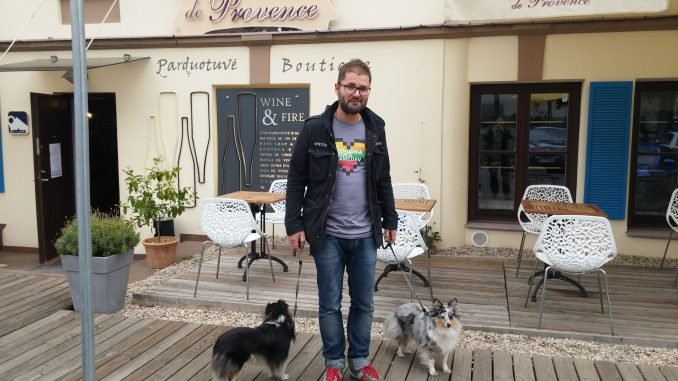
Twelve Russian video game development companies have already chosen to set up their new headquarters in Vilnius, the Lithuanian capital. Marielle Vitureau reports on Radio France.
With its narrow streets winding in between baroque churches, its charming cafés, sprawling green spaces, and multilingualism, Vilnius seems to have everything going for her. But it is, first and foremost, Lithuania’s EU membership – including its imminent adoption of the Euro – and its proximity that are attracting young entrepreneurial Russians, Ukrainians and Belarusians into making a life for themselves here. Vilnius is, after all, one of the 28 capitals of a Union that is synonymous with justice and security.
Sergei Klimov is at the helm of the video game development company Charlie Oscar, which relocated to Vilnius in June. The stability and openness he has found here contrasts with the volatile situation he left behind.
“We hoped something would change in Russia. And then, very quickly, everything went back to the way it was under the USSR. The media lost their freedom and so did the entrepreneurs. Independent media sources no longer exist. Justice operates from within the authorities’ back pocket. If you have a problem you’re helpless and defenceless. All of the country’s troubles stem from this situation.”
Haman Olešeo moved to Vilnius last summer for the same reasons. Settled in comfortably in a welcoming café on Stiklių Street, this young member of the Skull Games team, a Belarusian games developer, explains why he has left his country.
“I don’t feel safe at all in Belarus, I feel like I’m in danger. You can be beaten by the police for wearing nationalistic badges or the colours of Ukraine. These are things that happen every day.”
Since the start of the year, a dozen video game development companies have come from Russia, Belarus and Ukraine to settle in Vilnius. Lithuania boasts excellent internet infrastructure (one of the world’s fastest), as well as a pool of creative talent, a steadily rising number of IT students, and university curricula tailored to video game development.
This dynamic country has recovered rapidly from the economic crisis of 2008 and will adopt the euro next month.
This year, nearly 3,000 people native to Russia or Ukraine have asked for residence permits in Lithuania, a 50% increase compared to 2013. The same trend can be seen in the other Baltic countries. Here in Lithuania, a member of both the European Union and NATO, they feel safe.
Meanwhile in Vilnius, the community of video game developers keeps growing; and while he doesn’t want to invest in independent media, Sergei Klimov is planning to create a historical game about the golden days of the Republic of Two Nations, when Lithuania and Poland formed a single state which ruled over the region; a way of reminding people that these two countries do indeed belong to modern Europe.

Be the first to comment